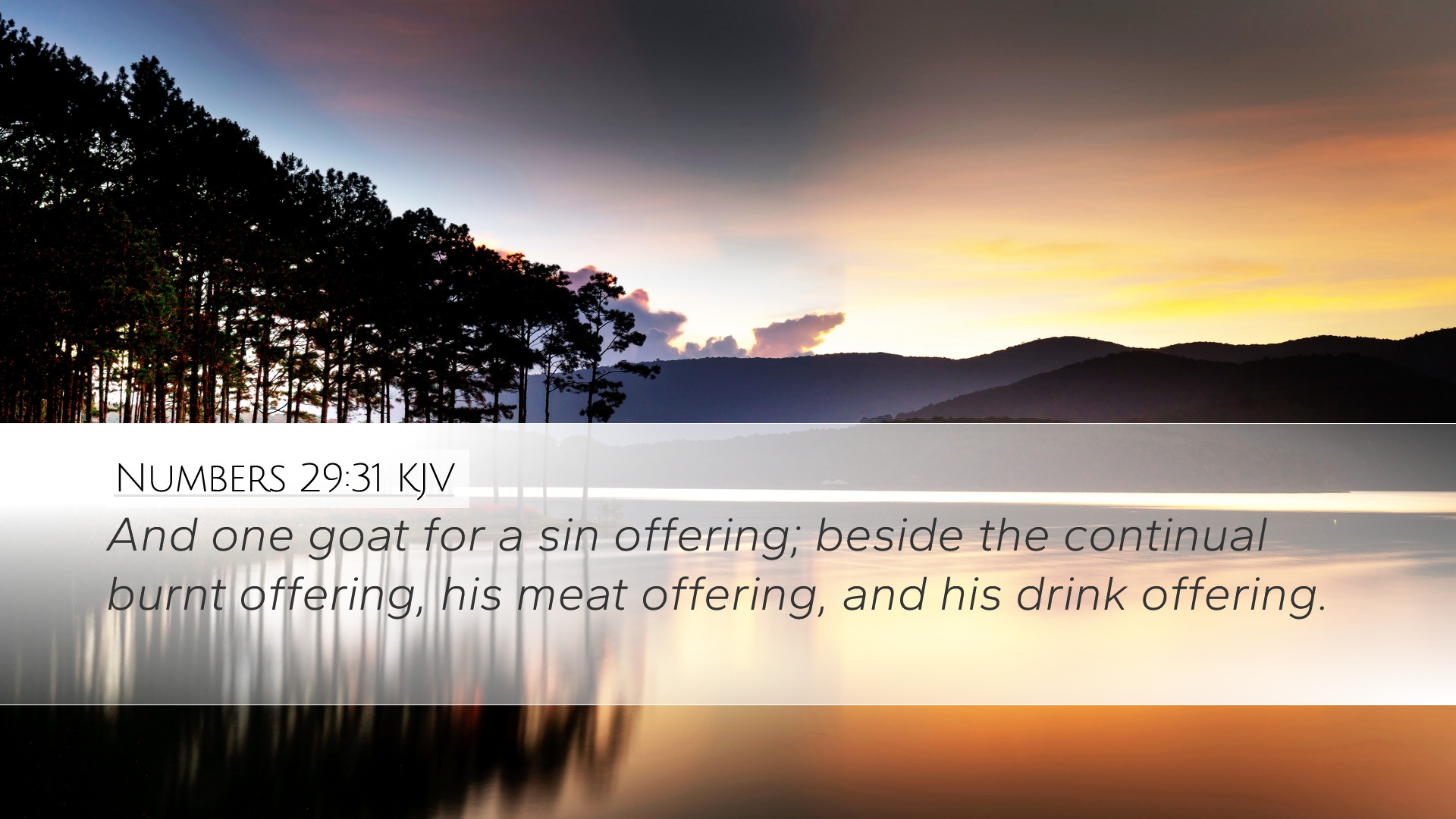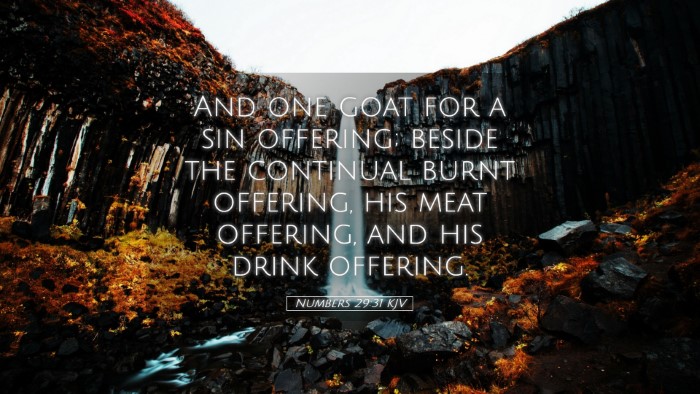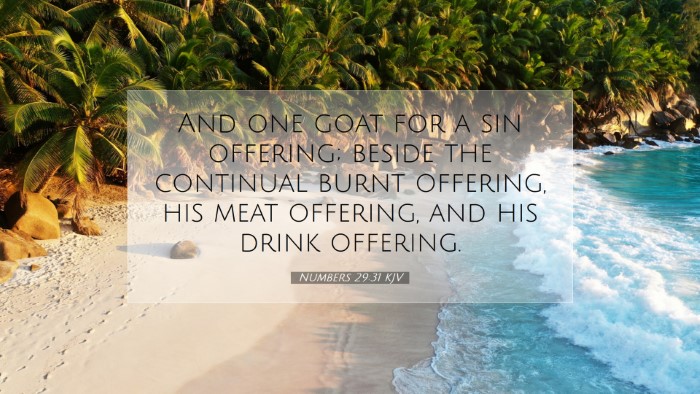Commentary on Numbers 29:31
Numbers 29:31 states, "And one young bullock, for a burnt offering, and two rams, and seven lambs of the first year; they shall be unto you without blemish:" This passage is part of the instructions concerning the sacrifices for the Feast of Tabernacles, reflecting the deep significance of sacrificial offerings in Israel's worship and relationship with God. Below is a combined commentary from public domain sources that sheds light on this verse.
General Overview
The sacrificial instructions provided in this text underscore the importance of purity and perfection in offerings to God. This reflects not only the physical act of sacrificing animals but also symbolizes spiritual truths about holiness and the need for atonement.
The Significance of the Burnt Offering
- Whole Dedication: The burnt offering symbolizes total dedication to God. Unlike other offerings, the entire sacrifice is consumed by fire, indicating that the worshipper is to surrender completely to God's will (Matthew Henry).
- Foreshadowing Redemption: The sacrifice of the bullock, representing strength and life, points forward to the ultimate sacrifice of Christ, who bears the sins of many (Albert Barnes).
- Acceptance by God: The quality of the offering being without blemish signifies the necessity for our offerings—spiritual or material—to be of the highest quality as a reflection of God's holiness (Adam Clarke).
Lambs as Symbols of Innocence
The mention of seven lambs is significant in biblical numerology, representing perfection and completeness. Lambs are symbols of innocence and, in this context, reflect the idea of Christ as the Lamb of God who takes away the sins of the world.
The Role of the Priestly Mediation
Priests played a crucial role in the sacrificial system. In Numbers 29:31, it is indicated that these sacrifices were to be performed in accordance with divine expectation, facilitating the congregation's access to God through lawful mediation.
- Delegated Authority: Priests served as mediators between God and the people, executing sacrificial rites as prescribed in the Law. This highlights the importance of divinely ordained authority and structure within worship.
- Spiritual Leadership: The effectiveness of the offerings relied heavily on the priests' adherence to God's commands, illustrating the weight of responsibility spiritual leaders carry, as noted by Clarke.
Spiritual Applications
In the New Covenant context, these Old Testament sacrifices can be applied metaphorically. They point believers to consider the nature of their offerings—whether they are giving themselves wholly to God and living lives that are pleasing in His sight.
- Personal Dedication: Just as the burnt offering signifies total surrender, Christians are called to present their bodies as living sacrifices (Romans 12:1).
- Life Without Blemish: The pursuit of holiness and living a life free from sin is a fundamental aspect of the Christian faith, emphasizing the requirement of personal integrity and devotion (Henry).
- Understanding Sacrifice: Reflecting on the nature of sacrifice helps believers to appreciate the greater sacrifice of Christ, promoting gratitude and humility in their approach to God.
Conclusion
Numbers 29:31 encapsulates the essence of Old Testament worship, illustrating the need for appropriate offerings, the symbolism of innocence, and the foreshadowing of Christ’s ultimate sacrifice. For contemporary readers, this passage serves as a reminder of the significance of our spiritual offerings and the depth of commitment that true worship entails.
As we study this verse, let us reflect on our own lives. Are we offering God our best? Are we recognizing the great price that was paid for our redemption? May we strive to provide offerings of worship that are pleasing and acceptable to our Lord.


